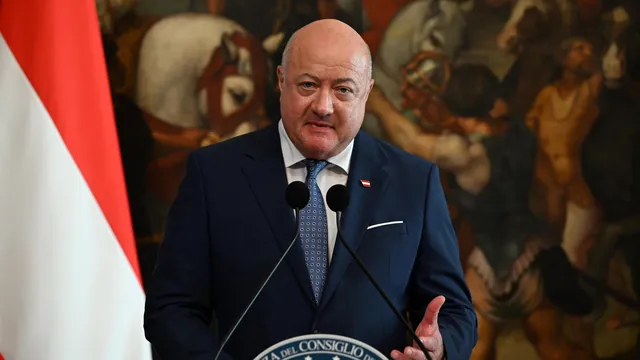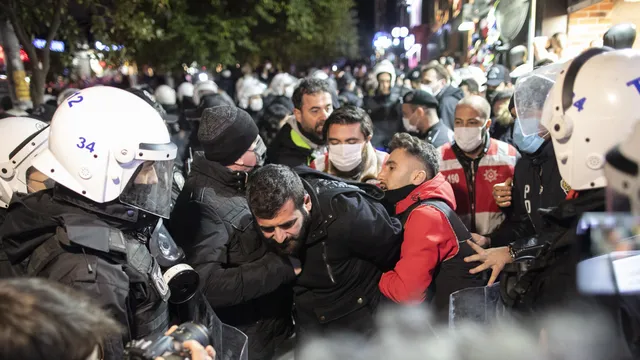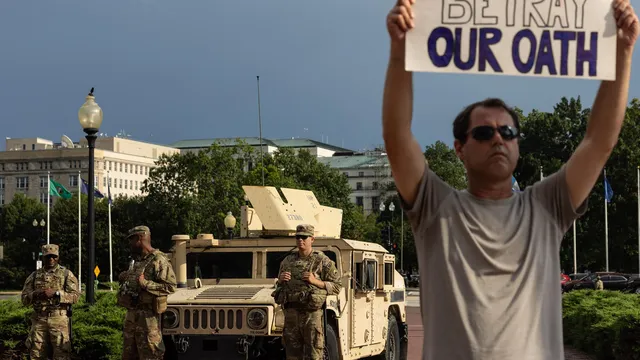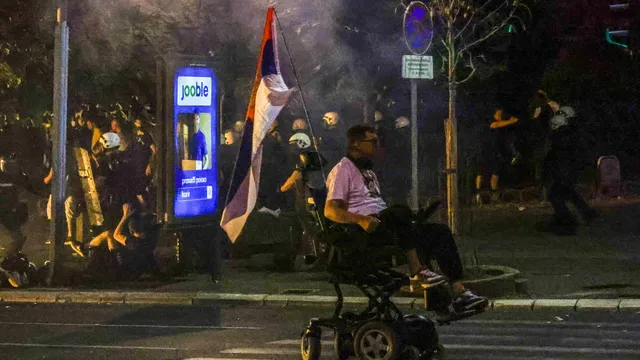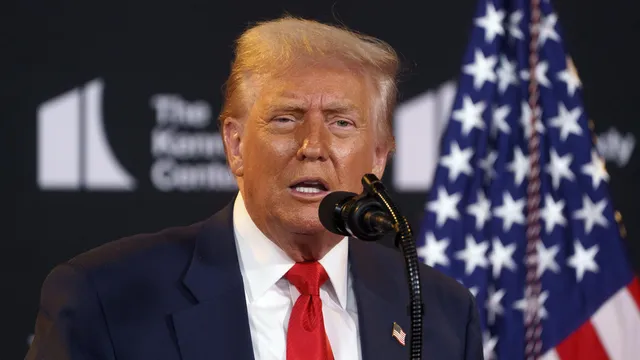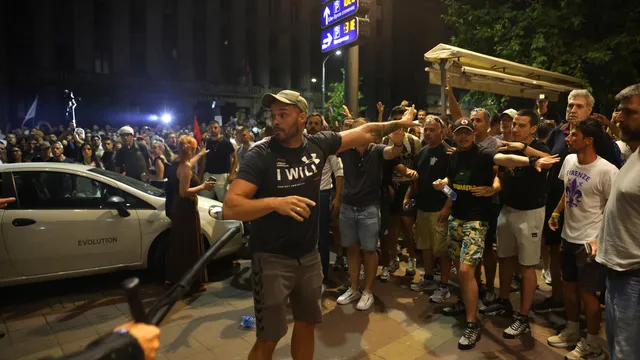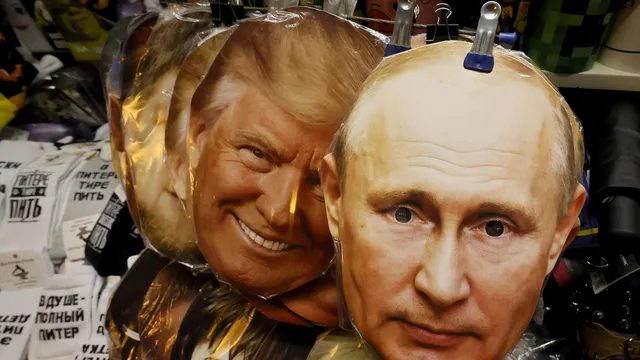Austrian Chancellor Christian Scholz's visit to Belgrade in mid-August carried a clear message from the European Union: Serbia must improve its respect for media independence and the rule of law.
While Serbian President Aleksandar Vučić tries to present the country as democratic, protests on the streets across Serbia belie this.
According to a source familiar with the talks, this was the main purpose of the chancellor's visit, despite official statements focusing on bilateral relations, economic cooperation, and Serbia's integration into the EU, according to a report by Serbian television Nova.
Schäfer met with Prime Minister Djurko Matuz and President Aleksandar Vučić, signed a declaration on deepening economic relations, and confirmed Austria's participation in EXPO 2027 in Belgrade.
Although Montenegro was also on the agenda, the source said that this was done so as not to focus attention exclusively on Serbia.
According to the source familiar with the content of the meeting between the Serbian president and the Austrian chancellor, this visit cannot be viewed solely from Serbia's perspective, as Stöcker also visited Montenegro.
Less than a month ago, Austrian Foreign Minister Beate Mainl-Reisinger, who was also in Belgrade at the end of April, visited Montenegro.
The visit, which was unusual due to its timing and lack of prior announcement, was described as a sign of serious concern.
"From an Austrian perspective, it is very strange that the chancellor is coming to a small country where the foreign minister recently visited. This is not the usual practice in Austrian foreign policy. The visit was designed in such a way as to conceal the key reason for the visit to the region, namely Serbia. That is why Montenegro was included in the agenda so that the focus would not be solely on Belgrade," the source said.
"In mid-August, such visits almost never happen unless there is a serious problem. They are especially not initiated by the Austrian chancellor. This visit was not announced in advance, which is normal. In Austria, such meetings are known well in advance, but this time everything was announced literally from today to tomorrow. The chancellor came to convey the message and position of the European Union on the situation in Serbia. This was later confirmed by the Austrian media," he added.
During the meeting, Stöcker told Vučić that Serbia must radically change its attitude toward independent media and its approach to the rule of law.
Vucic tried to present Serbia as a democratic country, claiming that it was "more democratic than EU leaders."
That same evening, during protests across Serbia, masked supporters of the ruling party, under police protection, threw fireworks at demonstrators.
"The chancellor did not come for pleasure or because the region is a priority for him, but with a clear purpose. At the press conference, he emphasized the importance of the rule of law, media freedom, and fair election conditions. In Serbia, this is misinterpreted as support, but in fact he came to convey the position of the EU and the country, which is one of the largest investors in Serbia and has a large Serbian diaspora," the source stressed.
The source explained that the EU often relies on Austria to interpret events in the Western Balkans.
"The chancellor came with a prepared position and messages, he didn't just talk. If everything was fine, we would have heard the usual diplomatic phrases about high relations and progress," he said.
Austrian media also reported that Stöcker raised the issue of the Serbian diaspora in Austria.
The protests in Serbia mobilized the community, and the source said that Vučić's regime tried to influence it for political purposes, including before the elections in Austria.
"The protests in Serbia have significantly activated the diaspora. Official Belgrade is trying to influence the Serbian community in Austria. Vučić spoke about the diaspora on the eve of the Austrian elections when he wanted to help the far-right FPÖ party win Serbian votes. Now, however, only Stöcker is talking about them, sending a clear message that Serbs are part of Austrian society and that Belgrade should not abuse them," the source said.
The exchange of views between Vučić and Austrian journalists also attracted attention. When asked about the protests and possible elections, he accused the Austrian media of portraying him as a dictator and said that "different opinions are not heard in Austria."
Repeating twice that "I am not a dictator," he received a response from Schökker, who admitted that Vučić's reaction had surprised him:
"I told him that I face critical questions every day and that this must be tolerated. That is media freedom," the chancellor was quoted as saying by the Austrian media. | BGNES

 Breaking news
Breaking news
 Europe
Europe
 Bulgaria
Bulgaria
